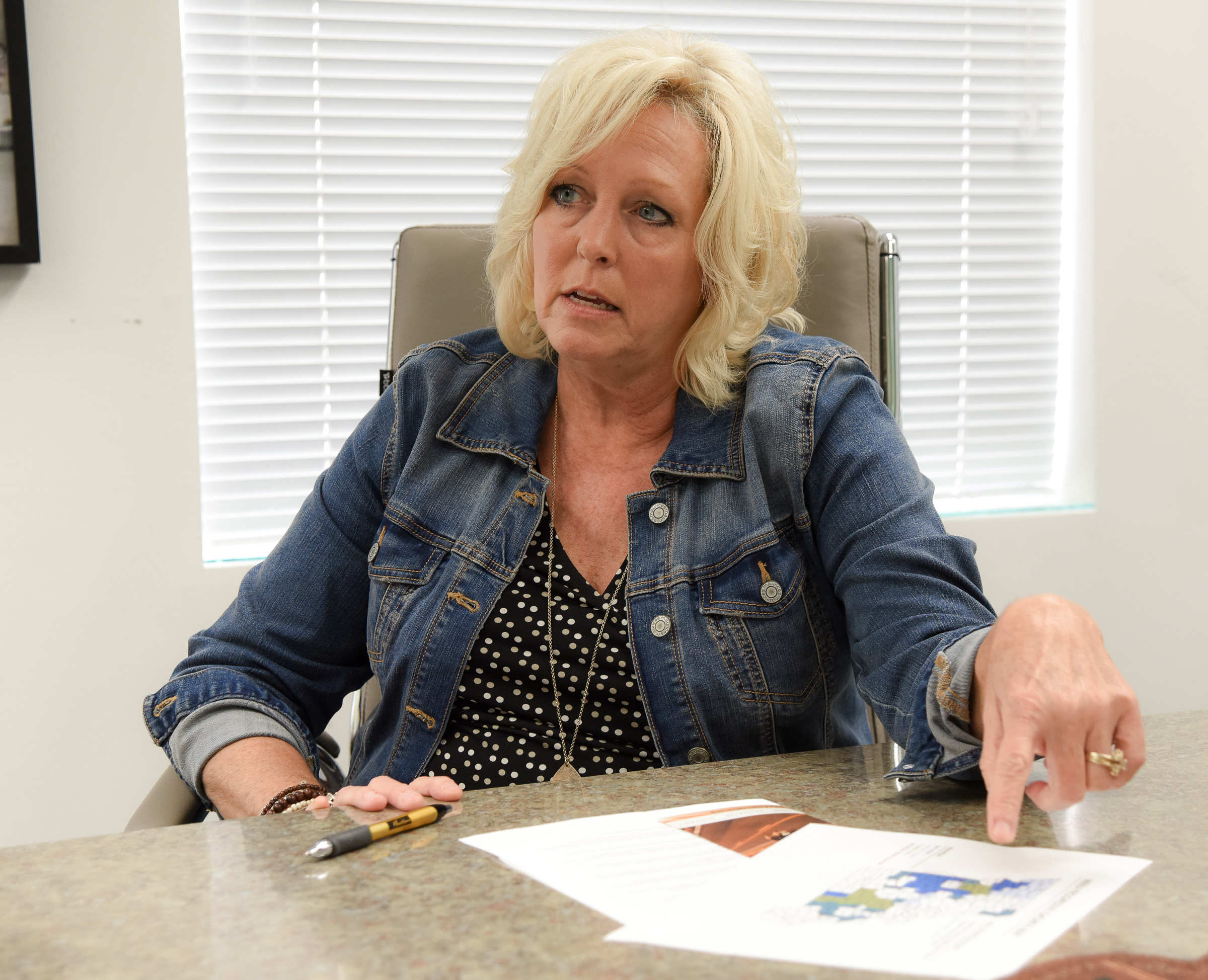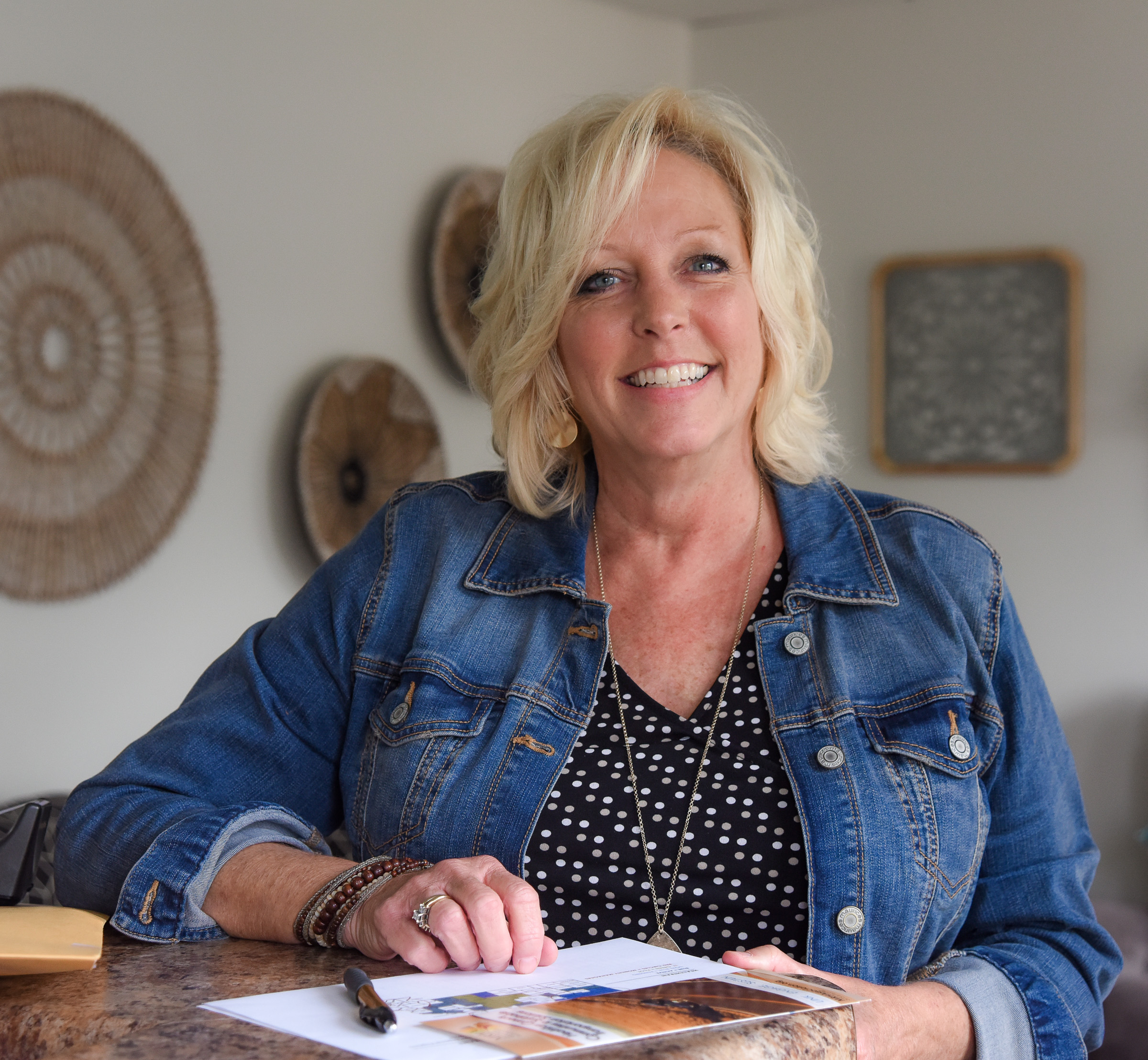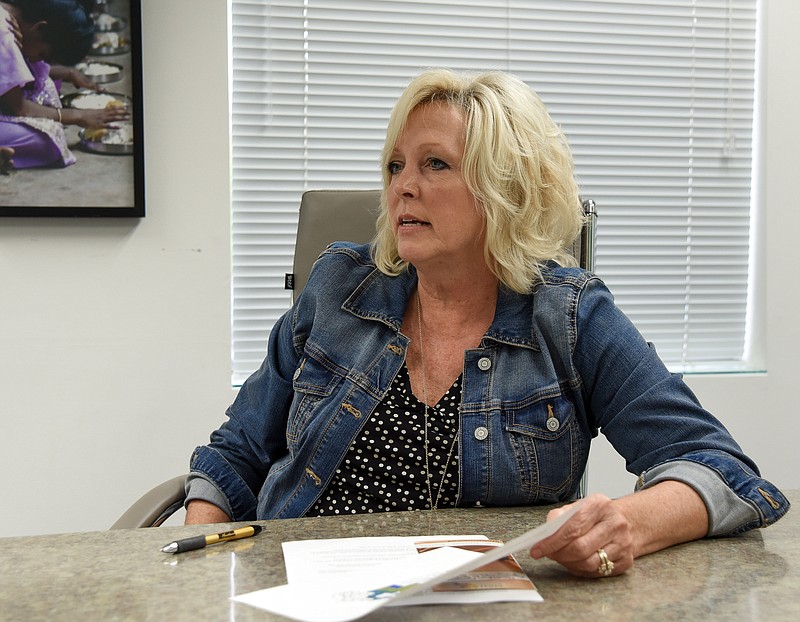Time and again, state health assessments have determined inconsistent transportation is a key factor preventing Missourians from receiving adequate health care -- particularly in rural communities.
The issue crops up every three years -- each time local hospitals conduct Community Health Needs Assessments, as required through the Affordable Health Care Act.
The tax-exempt hospitals have worked alongside each other, and with stakeholders for previous assessments, but were unable to do so during the most recent assessments because of the COVID-19 pandemic.
Still, their outcomes share something in common -- lack of transportation keeps some Missourians from maintaining or improving their health.
A Central Missouri need
Each of the assessments has determined that lack of affordable, available transportation prevents consumers from receiving ongoing care they need (or prevents them from picking up prescriptions) and results in unnecessary emergency room visits, according to Bev Stafford, interim director of the Missouri Rural Health Association.
The latest Missouri aging reports include transportation as the No. 1 challenge facing seniors, Stafford said.
"It's a monster. It's a beast. It's just so nebulous. It's so complex," she said. "So many of our seniors are living in rural communities and are aging in place. That's their desire. There's more ability to do that these days with telehealth services and home health. There's still a huge amount of transportation that needs to happen for them to do that."
Among other duties, the association administers HealthTran, a program connecting consumers to rural health agencies by providing rides. The pilot program started in extreme southern Missouri, then was picked up in the St. Joseph area, then in southeastern Missouri. It should soon begin services in Cole, Moniteau and Osage counties.
"There's been a verbal commitment with our Cole County medical community to include both hospitals, the community health center and Catholic Charities. We'll be reconvening probably in the next two weeks," Stafford said. "We're close to sitting down with an agreement -- a memorandum of agreement standpoint. We're walking them through that process. Helping them with decision-making around -- what is the population they want to serve?"
The service is customized to each community.
The program connects volunteer drivers with folks who need rides to hospitals, clinics, pharmacies and social services providers. The providers (or partners) pay for consumers' rides to and from their sites. They may charge the client/patient a fee ($5 each way, for instance) if they want to recoup some of their costs, Stafford said.
However, the HealthTran ride would still be a huge savings over a cab, Uber or Lyft, she said. And, having paid the fee gives more incentive for patients to make their appointments.
"Sometimes, if all services are free, (appointments) may be easily canceled because there is no skin in the game," she said. "But, $5 is a nominal fee for somebody, who would say, 'Yes I need transportation for $5. I'm going to get what I need.'"
Each partner will set a limit to how far they are willing to pay for rides. Volunteers provide the rides, and are reimbursed a mileage expense. Schedulers connect clients with the same volunteers repeatedly.
Generally, when clients fill out satisfaction surveys, they rate the service very high, Stafford said, because clients feel like they were with somebody they feel that they trusted, the ride was provided to them at no cost, and they're usually very grateful for the lift.
"They got what they needed, and/or they develop a relationship with that driver if they have recurring appointments," Stafford said.
Needing a champion
Beside drivers, two other things are needed -- a "champion" who will lead efforts to address social determinants of health, and partners who are willing to pay fees to get their clients to appointments.
Locally, that champion may be the United Way of Central Missouri. The United Way participated in the early health assessments and came away several years ago with a sense that the then-fledgling HealthTran program could be useful, according to Ann Bax, president of the local United Way.
"I stumbled upon HealthTran. That one kind of caught my attention," Bax said. "We started learning about it. Pretty quickly, I got in touch with (Stafford, who was then at SSM Health St. Mary's Hospital) and Capitol Region Medical Center."
The two health providers also saw the potential for eliminating cancellations and improving health outcomes, Bax said.
HealthTran came about after the Missouri Foundation for Health awarded the Missouri Rural Health Association a grant to develop the program.
The "innovation" grant was intended to increase rural residents' access to health services, and to create a model that could be replicated in other locations, Stafford said.
The HealthTran pilot ran in south-central Missouri -- along the state line with Arkansas in counties like Oregon, Ozark, Stone, Texas, Taney and Howell, which contains Ozarks Healthcare (a West Plains hospital). The program showed success with improving access and outcomes, she said.
She pointed out that the area contains some of the most rural communities in the state, has high levels of poverty and ranks very low in terms of health outcomes.
Additionally, health care providers have closed down in the region.
"It was just, kind of the perfect storm, leaving that particular area with limited or restricted services," Stafford said. "As you're talking about those counties, they're so remote. Even from an economic standpoint, from a transportation standpoint, what was there in terms of health care has been going away, so people have to travel even farther (for services)."
Residents of those communities generally don't have the means or resources to travel for health care, she said.
"It was the right place to pilot some ideas -- some concept," Stafford said. "The whole thing was -- these folks were already traveling long distances."
After hospitals and medical clinics closed, they would have to travel farther, she expanded.
Residents didn't have access to cabs, Uber or Lyft. Even if they did, the probably couldn't afford the cost.
"You're reliant upon your neighbors or your family to get you somewhere for health care -- to take you to medical appointments," she said.
The concept around HealthTran was initially -- if there was a mobility management coordinator, or a mobility management entity, they should be able to work with the community and partners in the community to provide transportation for folks who needed it to get to their medical appointments. Because the original program was primarily focused on health.
The pilot ran from 2014-17. It was successful, Stafford said. Subsequent grants from other sources have allowed the Missouri Rural Health Association to maintain the program, and to expand it. It now serves counties around St. Joseph and several in southwestern parts of the state.
Fortunate delay
The United Way of Central Missouri's Board of Directors approved setting aside $15,000 to help seed the program in Cole, Moniteau and Osage counties around the beginning of 2019. But on May 22, 2019, an EF-3 tornado raked across parts of Miller and Cole counties, causing widespread destruction and displacing hundreds of families.
Following the tornado, the United Way and its board of directors agreed to pause. They decided to wait until 2020. And the pandemic broke out.
So, another delay occurred.
But, something unexpected happened during the delay. The Missouri Rural Health Association conceded the program it has paid to have built to run the HealthTran program was too "clunky." It wasn't as user-friendly as organizers wished.
"The premise behind it is that when an individual checks out of a hospital or doctor's visit, they are asked at the time if they have need for a follow-up appointment. And they are asked if they need a ride," Bax said. "The actual rides come from the health care providers."
During the past two-plus years, the association found a much more streamlined system that was designed for senior transportation needs.
Again this year, the United Way is prepared to get the program under way, she said.
"I'd love to see it live and operational in the next couple of months," Bax said. "It's hard to believe we've been working on this for over three years. Patience is not one of my strong suits. But, we've had to do a lot of things that take precedence."
Are providers ready?
Partner (providers) have to make commitments to the program.
They may determine that they will only provide rides to their own clinics or agencies, and to no one else's.
Every case is going to be different, Stafford said.
The Missouri Rural Health Association is there to guide them through the process of decision making.
"As an agency partner, you have to know who you want to serve, how you want to serve them. How far out do you want to serve them?" she said. "You have to know who you're serving and what your geographic radius is."
There is a cost to the partner -- who has to pay $250 to become a member of the association.
With that, members get ongoing services. The idea is that the association has to guide the discussion and make sure the partner understands this isn't just a vendor service. Organizers don't want it perceived as a cookie-cutter service that is dropped off and left idle. The program is going to be designed to work for the partner.
After becoming a member, the partner pays a $750 administration fee.
"What that does for them is they get the technical assistance, the needs assessment, and the training for whoever is going to be on their staff to do the scheduling," Stafford said. "From that point on ... they will pay Missouri Rural Health Association -- right now, the rate is $1.75 per passenger mile. It's not from the time (the volunteer driver) leaves their home. It's actually when the client or patient is in the car with them."
The association not only trains people to use the scheduling tools. It recruits and trains volunteers.
The scheduler may be on site, right there speaking with the patient, or they may be offsite and send the patient a confirmation notification.
"This is all behind the scenes," Stafford said. "All (patients) know is they required transportation assistance for the health or human service that they needed, and they had a ride scheduled."
 Julie Smith/News Tribune photo: Bev Stafford, executive director of Missouri Rural Health Assn. talks about the need for safe transportation for patients in rural areas of the state. Working in conjunction with the medical facilities, patients can find a driver to get them back and forth from the appointment.
Julie Smith/News Tribune photo: Bev Stafford, executive director of Missouri Rural Health Assn. talks about the need for safe transportation for patients in rural areas of the state. Working in conjunction with the medical facilities, patients can find a driver to get them back and forth from the appointment. Julie Smith/News Tribune photo: Bev Stafford, executive director of Missouri Rural Health Assn. talks about the need for safe transportation for patients in rural areas of the state. Working in conjunction with the medical facilities, patients can find a driver to get them back and forth from the appointment.
Julie Smith/News Tribune photo: Bev Stafford, executive director of Missouri Rural Health Assn. talks about the need for safe transportation for patients in rural areas of the state. Working in conjunction with the medical facilities, patients can find a driver to get them back and forth from the appointment.
